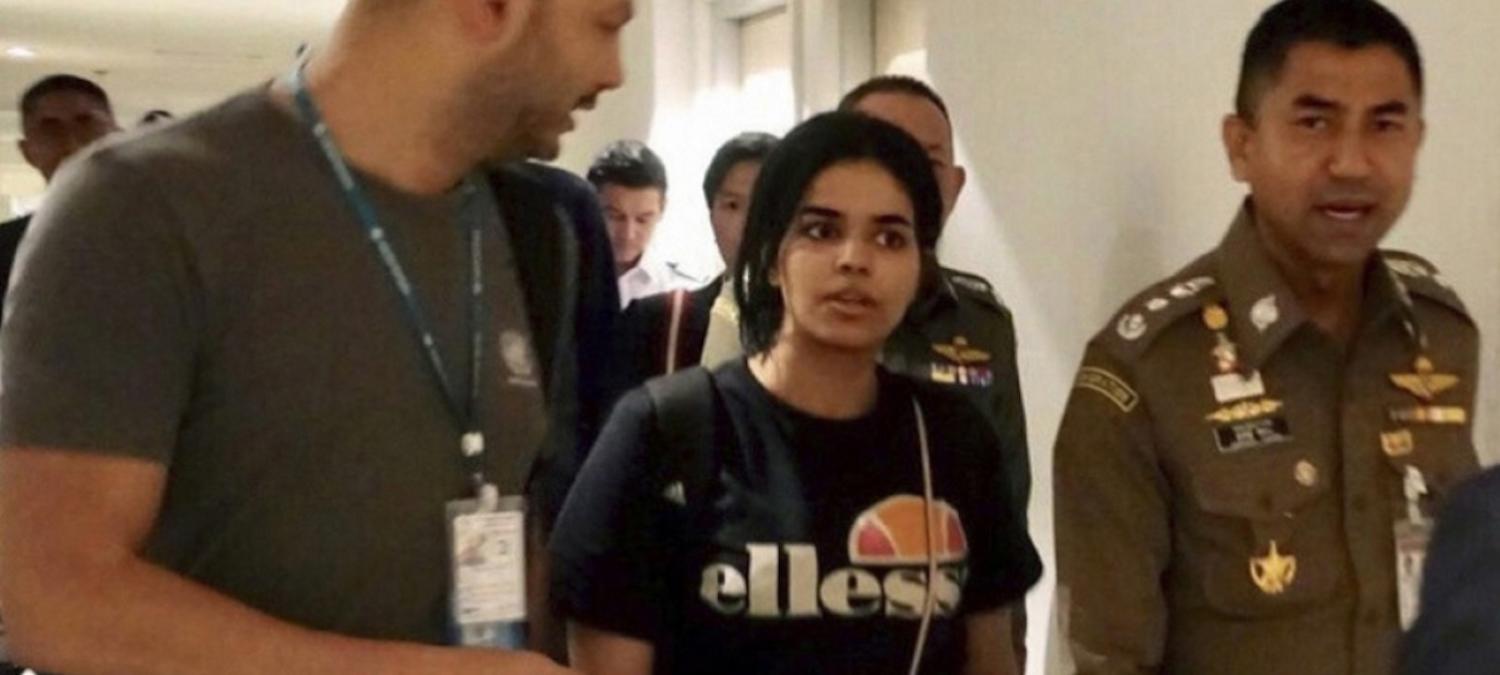The dramatic bid for asylum by Saudi Arabian teenager Rahaf al-Qanun became the focus of international attention this month when she barricaded herself into a hotel room in Bangkok airport after officials had told her that she would be deported to Kuwait. Al-Qanun took to social media, tweeting that the Saudi authorities would return her to her family, who she feared would kill her for her decision to defy their authority (not to mention Saudi law) by exiting their religious faith.
based on the 1951 Convention and the 1967 Protocol, I'm rahaf mohmed, formally seeking a refugee status to any country that would protect me from getting harmed or killed due to leaving my religion and torture from my family.
— Rahaf Mohammed رهف محمد (@rahaf84427714) January 6, 2019
Al-Qanun is now in a safe house in Canada, which admitted her at the request of the United Nations High Commission for Refugees. Australia, by contrast, was accused by Human Rights Watch Australia of “slow-walking” her asylum claim.
Cases such as al-Qanun’s seldom reach such a speedy and positive resolution. As Tamara Woods notes in The Conversation, women fleeing their countries of origin in order to escape from family violence have not historically been well-served by those determining their applications for asylum, who have tended to regard such violence as a private matter that does not meet the definition of persecution under the refugee convention. This is part of a broader pattern in which women’s rights are relegated to the realm of the private and domestic, whereas international relations are public and masculine.
Women fleeing their countries of origin in order to escape from family violence have not historically been well-served by those determining their applications for asylum.
Gayatri’s Spivak’s much-cited notion of “white men saving brown women from brown men” summarised the willingness of masculine decision makers to draw upon the discourse of women’s rights at times when it has suited their own strategic interests. While Spivak’s “brown women” were the Hindu widows who the British Raj claimed to be saving from the husband’s funeral pyres, Muslim women have become the most popular objects of rescue in the years since 9/11. However, decisions about which particular Muslim women deserve being “saved” are focused more on the needs of the power-brokers concerned than those of the women themselves.
Saudi Arabia holds an ambivalent position in the discourse of imperial feminism. While the country is reviled for its treatment of women in often sensationalist Western media coverage, the nation’s economic and strategic importance has limited the willingness of Western governments to impose diplomatic (let alone military) sanctions.
This pattern was established by the screening of the controversial 1980 documentary-drama Death of a Princess, a fictionalised depiction of the real-life execution of a Saudi Princess and her lover. The program outraged the Saudi Arabian government at a time when the nation was considered to be a vital player in a region thrown into upheaval by the Iranian revolution. While the British and United States governments resisted pressure from oil company executives to simply ban the film, they described it as “offensive” and emphasised its fictional nature.
This Saudi moral exceptionalism was highlighted again in 2002 when a fire in a girls school in Mecca killed 15 students, with Saudi media reporting that the religious police had obstructed rescue efforts because the girls were not wearing the mandatory headscarves and abaya (cloaks). The Taliban’s imposition of the burqa had formed a centrepiece of the United States’ cassus belli in Afghanistan, but the deaths of the students in Mecca was regarded as a domestic issue to be resolved internally.
And this pattern was repeated in 2018 when social media campaigns by both Saudi Arabian and Iranian women gained international media exposure. US Secretary of State Mike Pompeo was fulsome in his praise of the Iranian women’s rights activists who took to social media under the hashtag #TheGirlsofRevolutionStreet – a campaign that suited his own hardline stance against the Iranian government. The Saudi Arabian “I am my own guardian” campaign, however, failed to gain any such endorsement from Pompeo – hardly surprising, given his willingness to give Crown Prince Mohammad bin Salman the benefit of the doubt over the high-profile murder of Saudi journalist Jamal Khashoggi.
In recent months, the Saudi Arabian government has itself strategically deployed the issue of women’s rights with a high-profile campaign to celebrate the abolition of the prohibition on women drivers – celebrations dimmed by a Human Rights Watch report that some of the female “right to drive” campaigners had been tortured in prison in the final weeks of the ban. Now Rahuf al-Qanun’s asylum bid has all but wiped out the public relations benefit of high-profile Saudi males posting Youtube videos of themselves sitting in the passenger seat of the family car as their female relatives took the wheel.
And decision-makers in Australia and the United States must privately relate to the Saudi official who al-Qanun recorded joking to a Thai official that he wished they’d confiscated her phone instead of her passport.

